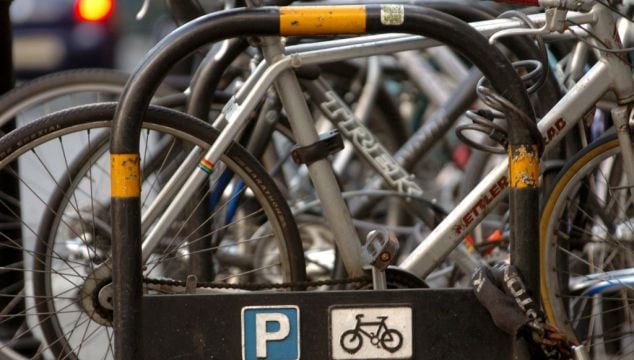Spending €336,000 on the construction of a bike shelter at Leinster House is “inexcusable and inexplicable”, the Taoiseach has said.
Minister of State with responsibility for the Office of Public Works (OPW) Kieran O’Donnell has asked his officials to carry out an immediate full review of the project.
In a statement, a spokesperson for the OPW said the project was procured via a framework agreement and complies with public procurement and planning guidelines.
The spokesperson said the bike shelter is within the grounds of Leinster House, and that its construction involved “several unique challenges”.
The OPW said the structure consists of a steel framed, glazed canopy to ensure long-term durability.
The materials used to build it included Irish granite, and the glass and steel were “carefully selected not only for their durability, but also for their compatibility with the historical setting of our national parliament”.
Speaking ahead of the first Cabinet meeting of the new Dáil term, Simon Harris said: “I think everybody can see the benefit of having somewhere to park a bike in work, and people get that, but what they don’t get is the extraordinary sum of money that this is costing. I don’t either, quite frankly.
“I think it is inexcusable and inexplicable. I welcome the fact that my colleague, the minister, has now demanded answers in relation to this, and I await that.
“But this is the sort of thing that rightly angers and annoys people and angers and annoys me as well because, yes, workplaces should provide somewhere to park the bike, grand, but they shouldn’t do it in a manner that is lavish or extortionate in relation to the public purse.”
The OPW said that the planning process was lodged in October 2022 and permission was granted in November.
The planning application said the bicycle shelter was to have no material impact on the historic fabric of Leinster House, the adjoining National Gallery or historic elements in Leinster Lawn.
The contractor was appointed during December 2023 and works started in early January 2024, with excavation works continuing to March 2024, and construction of the steel and glass structure and putting in place the granite paving.
The works were completed by mid-April.
A breakdown of the costs shows that almost €4,000 was spent on archaeological services, almost €284,000 on construction and installation and more than €10,000 on contract admin services. The VAT was €38,333.







